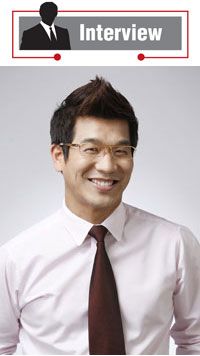
Some dub the widespread Korean wave, or “hallyu,” as a short-term frenzy but a renowned distributor of various hallyu products in Japan claims it is already a firmly established trend.
Hallyu Department Store CEO Kim Deug-hong is optimistic about Korean pop culture’s continuous popularity in Japan despite its recent struggle due to the clash of the two neighbors over territorial issues.
Based in Tokyo, the Hallyu Department Store chalked up a turnover of approximately 1.8 billion yen last year, up 50 percent from 2010.
“Recently, our sales have somewhat decreased because of diplomatic conflicts between Seoul and Tokyo on Dokdo, which have cooled the enthusiasm toward hallyu in Japan,” Kim said in a recent interview with The Korea Times.
“Yet, it will be just a temporary thing and I expect the fever for Korean pop culture to strengthen again in the not-so-distant future. Hallyu is a firmly established trend.”
In 1998 when Korea suffered from the aftermath of the Asian financial crisis, Kim crossed the East Sea to find business opportunities in Japan.
His first target was the food industry, which offered a stable income. But the profitability was not satisfactory for the young entrepreneur. So, he turned to other businesses.
Kim set up the Hallyu Department Store in downtown Tokyo in 2008 and a similar one in Yokohama two years later. Buoyed by their success, he changed his firm’s name to the same as the store.
“In 2008, people said that hallyu was done. I started my venture at a time when others were against the idea. I regarded hallyu as a long-term trend, not just a passing fad,’’ the 40-year-old recollected.
“Last year, hallyu peaked in Japan and an average of about 10,000 visited our department store in Tokyo every day to underpin our bottom line.”
In the late 2000s, the Korean wave based mostly on TV dramas showed signs of tapering off, which prompted observers to come up with expectations that hallyu would shrink or come to an end.
However, it came back in a bigger way with a flurry of Korean pop singers, who became cultural icons in Japan, and this led to shopping frenzies at the Hallyu Department Store.
The recent diplomatic rows over Dokdo between Seoul and Tokyo are a headache for Kim and it has negatively affected business.
Situated some 90 kilometers east of Korea’s Ulleung Island and 160 kilometers northwest of Japan’s Oki Island, Dokdo is a pair of volcanic islets, of which ownership has been disputed between Seoul and Tokyo over the past several decades.
Dokdo, called Takeshima in Japan, is presently under the strict control of Korea with armed police officers stationed there but Japan continues to claim sovereignty over the islets with rich fishery resources and minerals.
In particular, the dispute was exacerbated this year after Korean President Lee Myung-bak visited Dokdo, the first time a state leader has been there, which ended up chilling the passion for hallyu in Japan to weigh financially on Kim’s business.
But Kim argues that hallyu is resilient and will eventually be back.
“Hallyu is not a one-off event. In Japan, it dates back to a dozen centuries ago when Koreans transferred advanced culture to Japan. Since it has a firm root, it will blossom again,” he said.
Kim said that many other Asian nations are interested in attracting department stores with hallyu items.
Although he is currently focused on his Japanese businesses, Kim said that he plans to advance into Asian countries where hallyu is strong as soon as things get back on track in Japan. <The Korea Times/Kim Tae-gyu>




